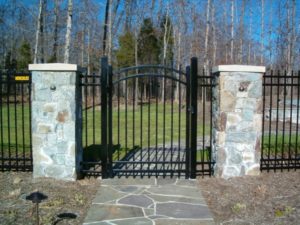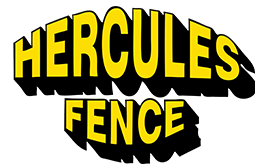
Metal fences and gates are beautiful, but do they rust?
Metal fencing is a favorable choice among property owners due to its distinct aesthetics and durability. One question that often arises when investing in a metal fence is whether it is prone to rust over time. This article explores this topic, describing the different types of metal fences and their reaction to various factors that might cause rusting.
Common Metal Types Used for Fencing
To understand if metal fences rust over time is to understand the metal types commonly used for fencing—aluminum, steel, and iron—because not all metals display the same reaction to the environment. Each metal has unique characteristics that make it ideal for fence construction.
- Aluminum is popular due to its resistance to corrosion and lightweight nature. It’s not susceptible to rusting, making it ideal for damp or coastal environments, but it can oxidize over time, developing a dull layer.
- Steel fencing is another standard option. It is robust and durable, making it ideal for security purposes. However, steel can rust over time if not adequately treated or maintained. Galvanized or coated steel can resist more rust.
- Iron, particularly wrought iron, is also popular for fences due to its aesthetic appeal and strength. However, iron and steel fences can rust over time if not correctly maintained or protected.
While some metal fences, such as aluminum, can resist rust better than others, it’s critical to consider the local environment. A fence in a coastal or high-moisture environment is more likely to experience rusting than one in a dry climate.
The Process of Metal Rusting
While it’s a slow process, metal fences rusting can progressively weaken, degrading its aesthetic appeal and reducing its lifespan. Rusting can likely occur when the bare metal of a fence is exposed to the elements. In particular, this process is a chemical reaction that happens when metal directly touches oxygen and water.
Causes of Metal Fence Corrosion
There are some factors that slow or quicken the rate of rusting, including:
- Metal fences can rust faster in regions with high humidity and rainfall. The presence of salt water can also accelerate the corrosion process.
- The metal type used in the fence contributes significantly to the corrosion rate. For instance, iron and steel tend to rust faster than aluminum. Galvanization, paint, and other surface treatments can protect against rust.
- Environmental factors such as soil composition, pollution, and exposure to certain chemical agents can also impact the rate of metal fence corrosion.
- Metal fencing maintenance matters to prevent corrosion. Regular cleaning can help reduce the rusting process.
While rust might appear minor, the impact on the fence’s maintenance and durability can be substantial. Following up with maintenance is critical to keep your metal fence in great condition for a long time.
Find Your Perfect Fence With Help from Hercules Fence Newport News
Hercules Fence has experience with nearly every type of residential and commercial fencing material imaginable, from wood and aluminum to chain link, vinyl, steel, and even temporary fencing. We have developed a reputation for quality work and fair, competitive prices. Hercules Fence is ready to serve you from six convenient locations. We have offices in Manassas, Richmond, Newport News, Norfolk, Virginia, Maryland, and North Carolina.
If you have any questions about finding your dream fence or maintenance, contact Hercules Fence today by calling (757) 316-3600 or visiting FencesNewportNews.com for a free quote!







